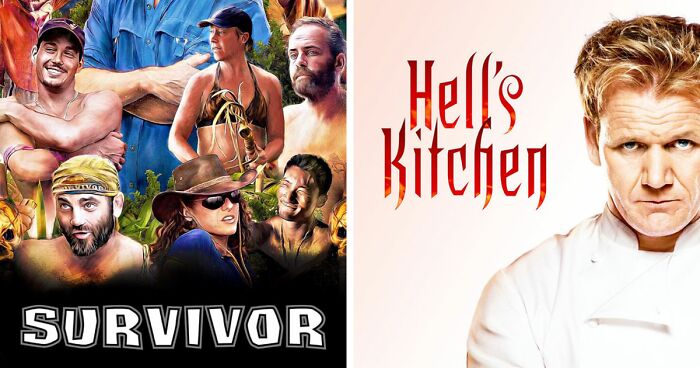News Blast: Your Daily Update
Stay informed with the latest news and trends.
Reality TV: Where Life Is Just a Script Away
Explore the fascinating world of reality TV, where everyday life meets scripted drama—dive in and uncover the truth behind the cameras!
The Evolution of Reality TV: From Candid Cameras to Scripted Surprises
The evolution of reality TV has been a fascinating journey that spans several decades, beginning with simple concepts like Candid Camera in the 1940s. This early show captured unsuspecting individuals in humorous situations, laying the groundwork for what would evolve into a genre focused on real people in genuine scenarios. As we moved into the late 20th century, the landscape began to change with the introduction of shows like The Real World in 1992, which combined social experimentation with the raw authenticity of real-life interactions. This blend of realism and drama set the stage for a new era of television, paving the way for numerous spin-offs and a proliferation of reality programming.
As we entered the 21st century, reality TV underwent another transformation, integrating elements of scripting and production to create more compelling narratives. Shows like Survivor and American Idol introduced structured competition, allowing viewers to engage with contestants on a deeper level. This shift towards scripted surprises not only enhanced the entertainment value but also attracted a wider audience, resulting in high ratings and lucrative spin-offs. Today, reality TV encompasses a diverse range of formats, from lifestyle and talent competitions to intense social experiments, showcasing just how far the genre has come since those early candid moments.

Behind the Scenes: How Reality TV Shows Shape Our Perception of Reality
Reality TV shows have long captivated audiences with their blend of entertainment and authenticity, yet they often create a distorted version of reality. These programs, ranging from talent competitions to lifestyle dramas, present carefully curated scenarios that can influence viewers' perceptions of normalcy and success. For instance, contestants on shows like The Bachelor or Survivor are often placed in extreme circumstances designed to heighten drama, leading viewers to believe that such experiences are commonplace. This manipulation can result in unrealistic expectations about relationships, competition, and interpersonal dynamics, as audiences begin to equate scripted scenarios with genuine human interactions.
Moreover, the impact of social media amplifies these perceptions, as fans engage with content that glorifies specific lifestyles showcased in reality shows. The rise of influencers and reality TV stars fosters a culture where followers aspire to replicate the seemingly glamorous lives portrayed on screen. It creates a dichotomy where viewers may subconsciously adopt attitudes and behaviors that align with the ideals presented on these shows, often overlooking the fact that much of what they see is staged or edited for maximal appeal. Thus, the allure of reality TV not only entertains but also subtly shapes our understanding of reality and our expectations for life.
Are Reality TV Stars Real? A Deep Dive into Authenticity and Performance
The question of whether reality TV stars are real is a multifaceted one that often blurs the lines between authenticity and performance. While these individuals are often marketed as 'ordinary people' navigating extraordinary situations, the reality is that producers meticulously craft storylines, edit footage, and manipulate scenarios to heighten drama and engagement. This leads to a curious paradox: although the events may be unscripted, the portrayal of the participants can be heavily staged, prompting viewers to question the genuineness of what they are watching.
Moreover, many reality TV stars are acutely aware of their roles and the expectations that come with them. As they seek fame and recognition, they often embrace certain personas that may not accurately reflect their true selves. This performance aspect poses further challenges to the idea of authenticity, as the lines between self-presentation and real-life personality become increasingly blurred. Ultimately, audiences must grapple with the uncomfortable reality that, while these shows may offer glimpses into the lives of their stars, they are also crafted narratives designed for entertainment rather than rigorous documentation of reality.